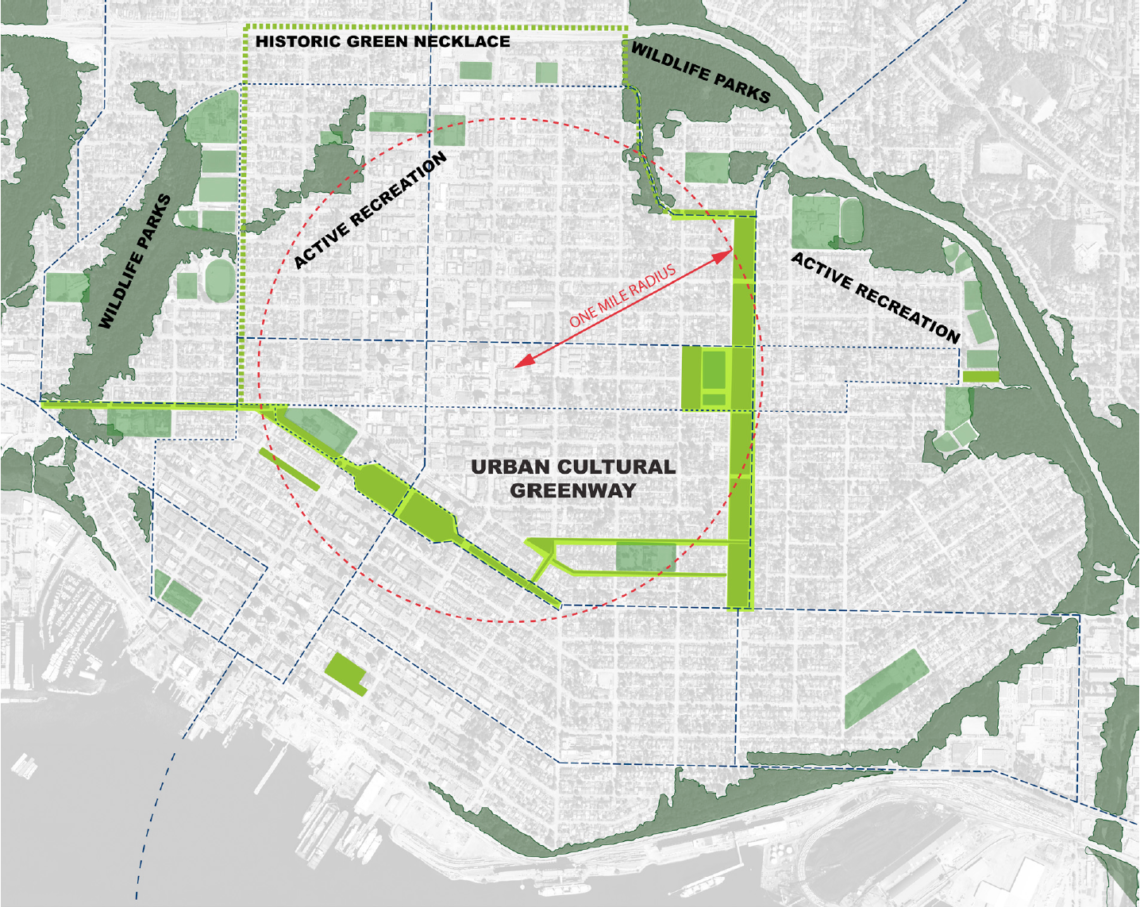March 4, 2010
Urban Cultural Greenway – The Potential of Urban Agriculture as Sustainable Urban Infrastructure
Conference paper in REthinking: Proceedings of the 98th ACSA Annual Meeting, 2010

Figure: Park systems in the city of North Vancouver
Abstract
Presently a large number of green spaces in North American cities show poor ecological performance, offer little cultural value and lack public use. This article examines how the integration of programs related to urban agriculture can transform these underutilized spaces into productive urban ‘cultural’ greenways. The City of North Vancouver, British Columbia, and a local pilot project for urban agriculture, an urban farm currently in the process of development, serve as case studies for the creation of rich hybrid landscapes and their impact on the expansion and remediation of existing urban infrastructure. The creation of an agricultural, productive landscape in the city reconnects the public to the natural process of food production. Such projects carry the potential to create a lasting impact on the entire community by offering local nutritious food, education opportunities, social (re)integration, and environmental awareness, as well as the generation of local economic growth.
Citation
Proksch, Gundula. Daniel Roehr. 2010. “Urban Cultural Greenway – The Potential of Urban Agriculture as Sustainable Urban Infrastructure,” REthinking: Proceedings of the 98th ACSA Annual Meeting, New Orleans, LA, March 4-7, (Washington, DC: ACSA Press, 2010), 346-356
